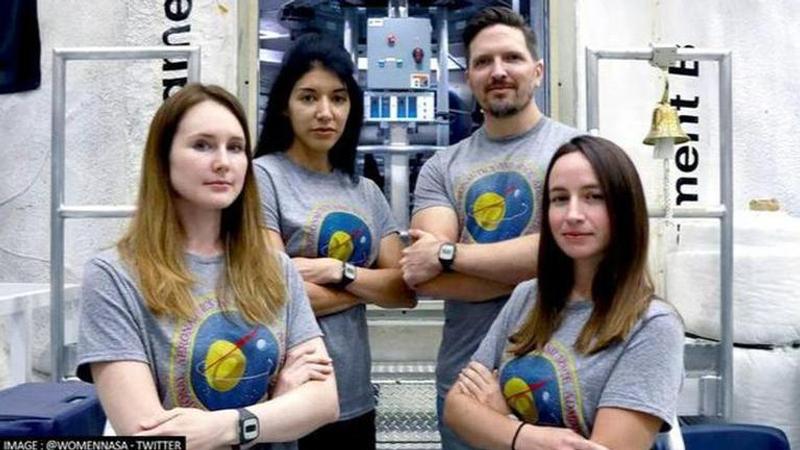Published 19:27 IST, September 29th 2021
NASA to begin simulated trip to Mars moon 'Phobos' from Oct 1; volunteers announced
NASA said that data from this mission will add to the information required for future endeavours to Moon under the Artemis and long-duration Mars missions.

NASA is not holding back in its preparations to head for Mars as the agency, on September 29, announced another Mars-oriented simulated programme. The agency also revealed the names of the four volunteers who will bring this project to life that is meant to last for a total of 45 days. NASA said that data from this mission will add to the information required for future endeavours to Moon under the Artemis mission and long-duration Mars missions.
A simulated journey to Mars moons
As per the revelations made by NASA, the project will be executed inside the ground-based habitat at NASA’s Johnson Space Center in Houston starting October 1. Named the Human Exploration Research Analog, or HERA, the habitat has been designed to stimulate deep space environments such as isolation, confinement, and remote conditions in exploration scenarios.
The agency revealed that the volunteers have signed up for a simulated deep-space journey that will eventually end on Phobos, a moon of Mars. It further stated that the crew members, who are scheduled to stay inside HERA till November 15, will experience space-like conditions like communication delays that will amplify as the crew starts getting closer to Phobos. Amid these conditions, the members will be faced with challenges like gaining autonomy during the mission and practising communication with the least impact on mission operations.
Meanwhile, these are the volunteers NASA has selected for the simulated trip to Phobos.
Lauren Cornell
Dr. Lauren Cornell is a research scientist who is currently serving the U.S. Air Force, in San Antonio, Texas, in the research, development, and evaluation of innovative technologies. Besides, she is a graduate of Texas A&M University and holds a bachelor's and master’s degree in Genetics and Biomedical Engineering respectively. She also has a Ph.D. in translational science and is co-founder of NovoThelium, a company focussed on improving women’s health care.
Monique Garcia
Monique Garcia is a contributing factor in the U.S Space Force where she assists with developing task automation systems on satellites. Apart from this, she is also contributing to the development of NASA’s Deep Space Network telescope at The MITRE Corporation where she is designated as human factors engineer and systems administrator. Interestingly, along with these credentials including 12 years of military service with the Air National Guard, Garcia is also a certified personal trainer with specialisations in health and performance-based cognitive and behavioural techniques.
Christopher Roberts
This Texas-based project engineer is responsible for the end-to-end integration and on-orbit operations of the hardware of the International Space Station and the spacecraft visiting it. A Physics graduate from St. John’s University in New York City and a master’s degree in engineering physics, Roberts has won accolades like the NASA’s Spaceflight Awareness Award 2021 for his dedication and flight safety during the missions.
Madelyne Willis
Hailing from Atlanta, Georgia, Willis is a microbial ecologist who has extensive field experience owing to her multiple expeditions to the Arctic and Antarctic. As per NASA, Willis is currently pursuing her Ph.D. in Ecology and Environmental Science at Montana State University, which focusses on polar ecology.
Image: Twitter/@WomenNASA
Updated 19:27 IST, September 29th 2021



